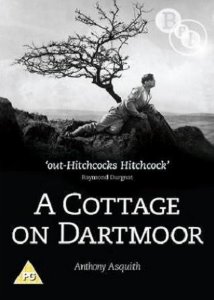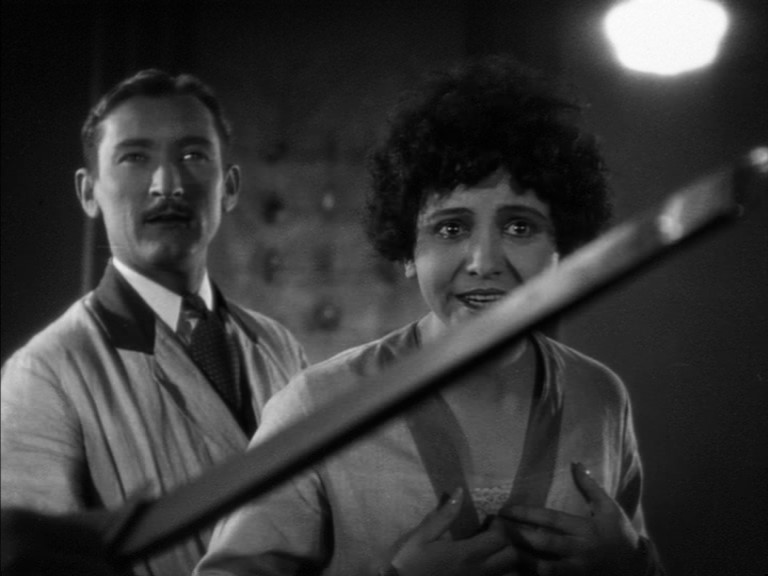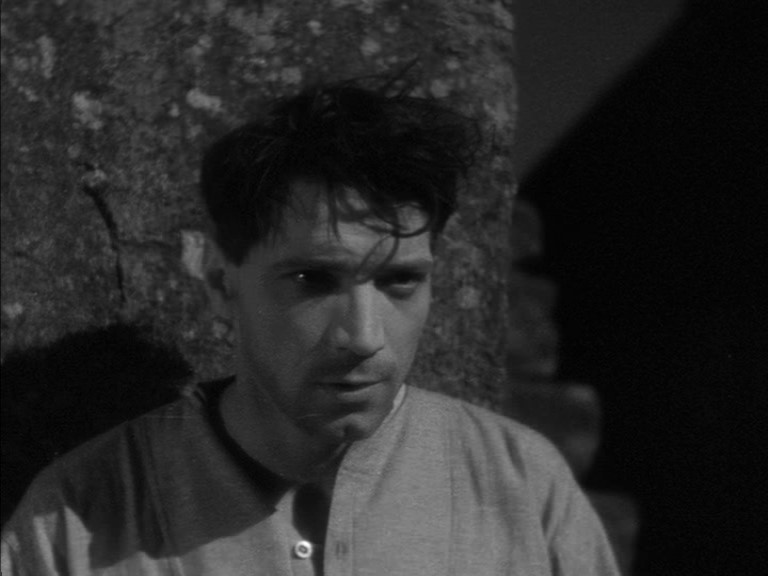![]()
![]()

![]()
![]()
|
Search DVDBeaver |
S E A R C H D V D B e a v e r |
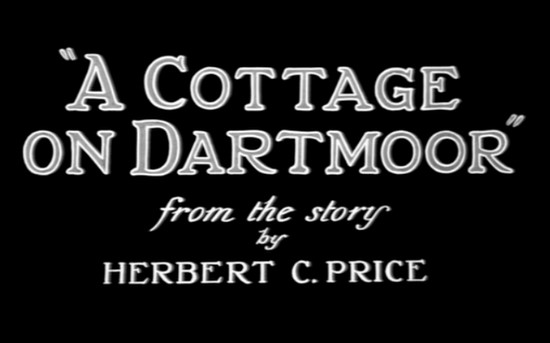
(aka 'Escape from Dartmoor' or 'Fången 53')
Directed by
Anthony Asquith
UK 1929
|
One of the very last silent
films to be made in Britain before the talkies revolutionised cinema, A
Cottage on Dartmoor (1929) is a virtuoso piece of filmmaking, a final
passionate cry in defence of an art form soon to be obsolete. Restored from film
materials preserved in the BFI National Archive, this little-known gem is
released on DVD for the first time in the UK and presented here with a specially
commissioned score by Stephen Horne. *** Made, like Hitchcock's Blackmail, in separate sound and silent versions, Asquith's simple, striking passion play offers a glimmer of visual Expressionism rarely seen in British cinema. (Regrettably, the National Film Archive print under review is the sound-cut minus sound.) Opening on a breathless dash over the sodden looming moors, it flashes back from the exclamation 'Joe!' to the city and an extended exposition in which the self-same barber suffers as his salon colleague Sally is willingly wooed by a ruddy-faced customer. At times the film's ardour is more intense than the speed of its storytelling, but it's eminently handsome, both in the simpatico performances and in Asquith's crisp, adventurous, Eisensteinian montage. |
Theatrical Release: October 1929
Reviews More Reviews DVD Reviews
DVD Review: BFI - Region 2 - PAL
| DVD Box Cover |
|
CLICK to order from: |
| Distribution | BFI Home Video - Region 2 - PAL | |
| Runtime | 1:24:15 | |
| Video | 1.33:1
Aspect Ratio Average Bitrate: 5.13 mb/s PAL 720x576 25.00 f/s |
|
|
NOTE: The Vertical axis represents the bits transferred per second. The Horizontal is the time in minutes. |
||
| Bitrate: |
|
|
| Audio | Silent with piano accompaniment (Dolby Digital 2.0) | |
| Subtitles | None | |
| Features |
Release Information: Edition Details:
• Insight (1960) - Study of Anthony Asquith at work featuring on
set footage and interviews - 15:01 |
|
| Comments: |
NOTE: The Kino version HERE released in October of 2007 is reported to have ghosting from an incorrect standard source - as well as combing from being interlaced. Taking this into consideration the new BFI edition is definitely superior on the visual front. Housed on a single-layered DVD this BFI release looks quite marvelous. It was restored from film materials preserved in the BFI National Archive and shown on the Festival circuit. Image quality has some incredible moments considering the film's age of almost 80 years. It can look very impressive - even on an advanced viewing system as the disc is progressively transferred. Fine noise resembles grain. Contrast is strong and detail looks probably as good as it did in its initial theatrical showings. Damage marks still exist especially in the opening 10-15 minutes but it settles in for a fairly smooth presentation. The audio track is presented here with a specially commissioned solo piano score by Stephen Horne. It reproduces the aura of a vintage showing blending adeptly with the onscreen activity. There are no subtitles offered. Supplements include Insight - a 15 minute piece from 1960 - examining Anthony Asquith at work featuring on-set footage and interviews. Plus we are treated to Rush Hour a short Asquith comedy from 1940. This was taken from the BFI National Archive dealing with British workers coping with the transport system during the WWII. There is also a fully illustrated liner notes booklet featuring essays by Bryony Dixon and Geoffrey Macnab. The film? - the references to Hitchcock are appropriate and if you didn't know the difference this could easily be counted as part of his early work - murder amongst the lower classes, love, betrayal, justice - it has the trademark genre proclivities. I was quite enthralled and recommend this DVD if you are at all interested in viewing. Great work by the BFI! |
DVD Menus
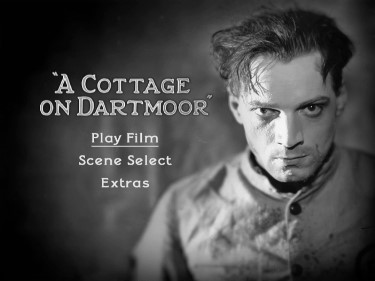 |
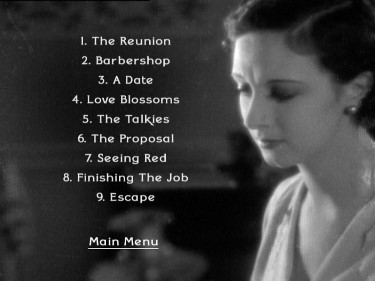 |
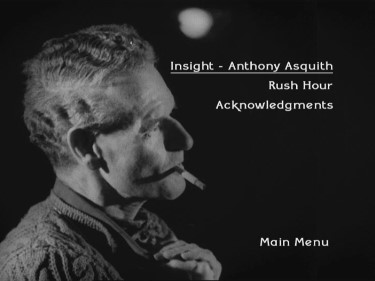 |
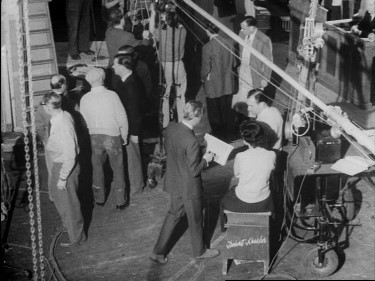 |
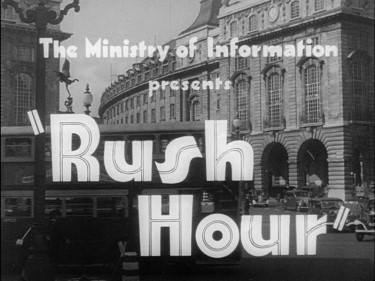 |
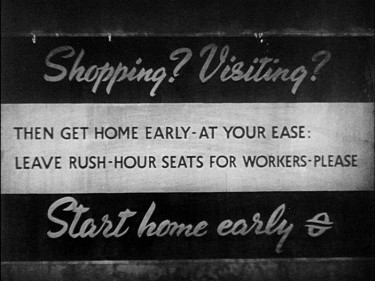 |
Inter-title Sample
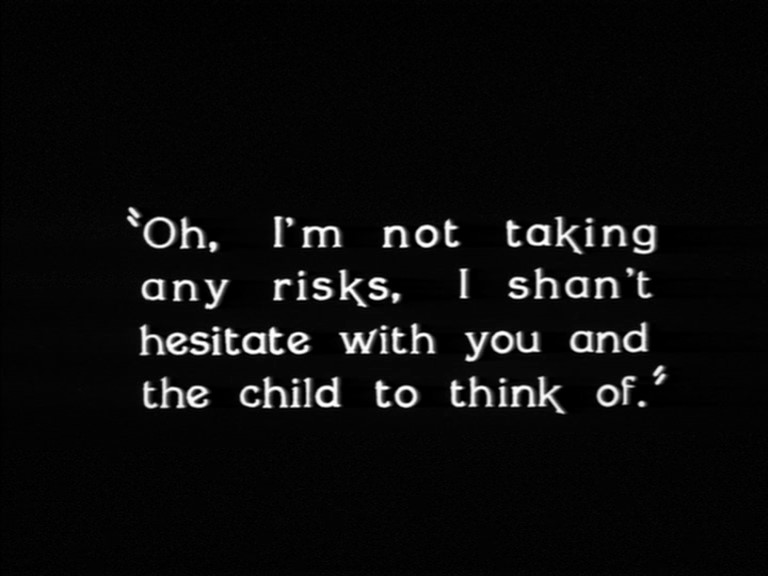 |
Screen Captures
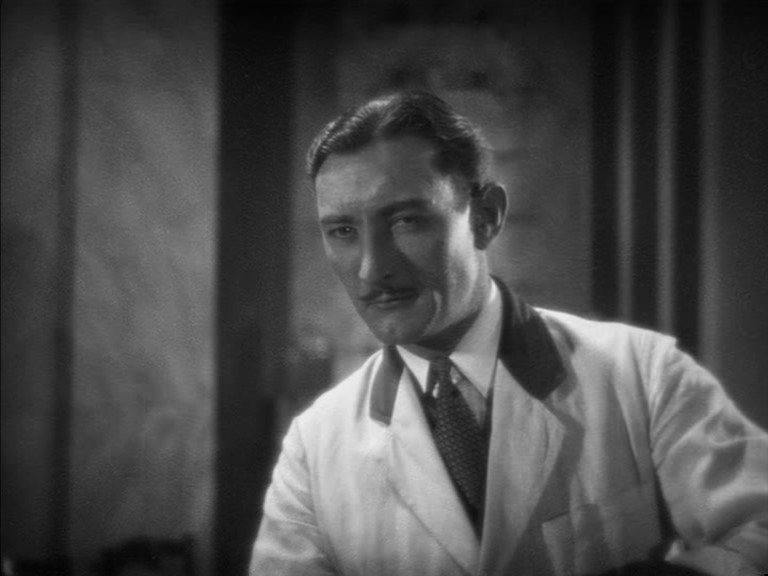 |
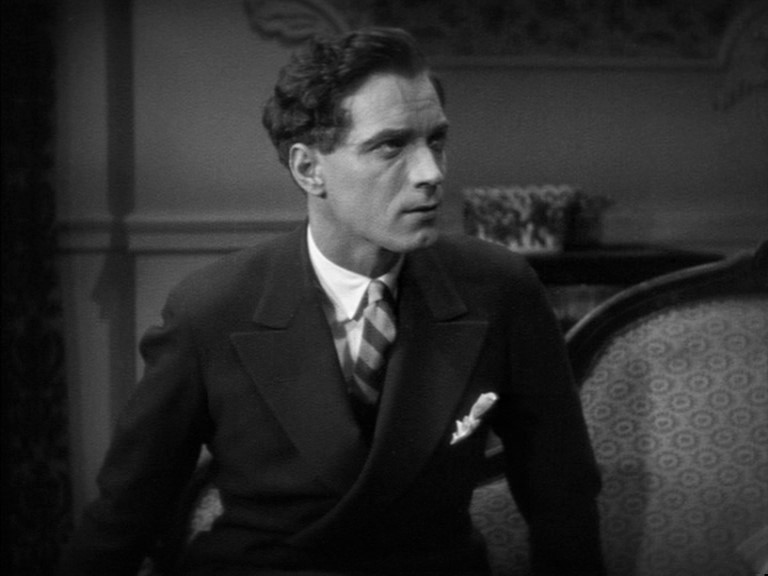 |
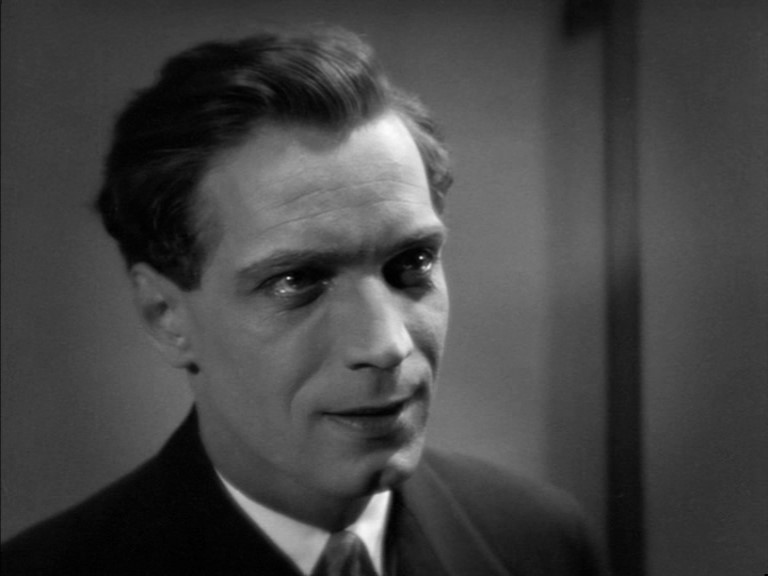 |
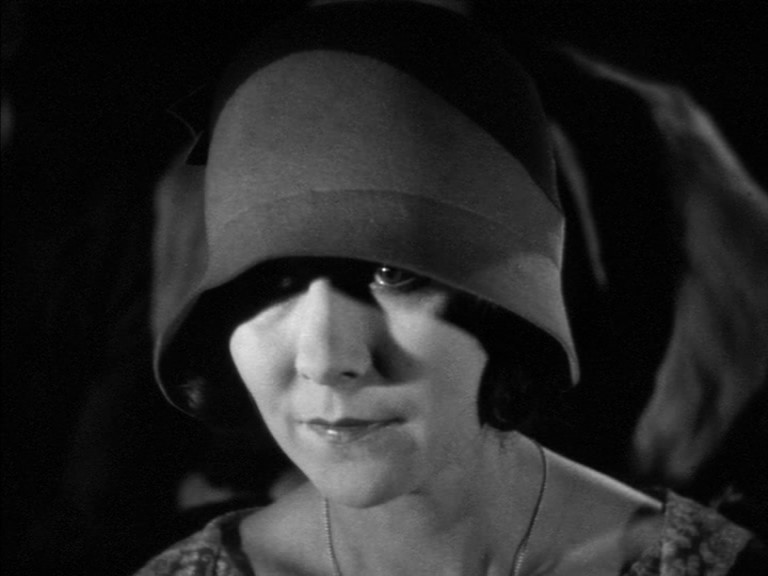 |


